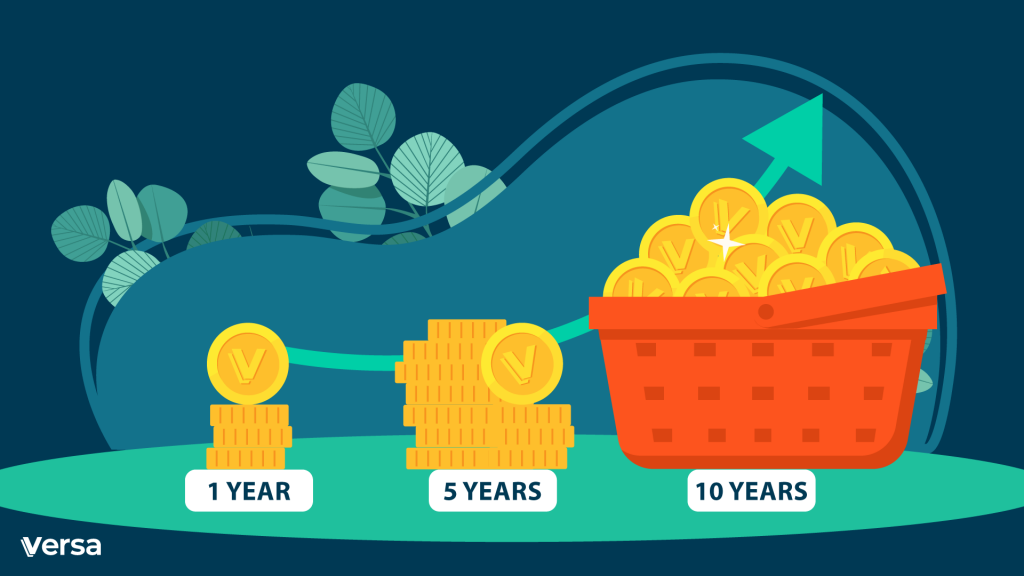
We often encourage investors to start investing as early as possible. But why?
In investing, time is everything ⏰
Time allows you to ride the temporary ups and downs in the market. Time also lets your returns grow faster through compounding returns. The longer you invest, the likelier you are to maximise your potential returns.
So let’s look into one of the basic principles in investing: compound returns
Compound returns are the return an investor earned on his original investment, plus all the returns earned on the returns that have accumulated over time. Think of it as earning a return on your previous returns.
When you invest long-term, your returns are continuously reinvested. This leads to a snowball effect of your returns increasing overtime.
Here’s an example using EPF’s 2021 and 2022 dividend rates:
You have RM10,000 at the end of 2020 in your EPF account. With the help of compound interest, here’s how much you would have earned by the end of the next 2 years*:
👉 2021 – 6.1% dividend rate: RM10,610.00 (+RM610.00)
👉 2022 – 5.35% dividend rate: RM11,177.64 (+RM567.64)
💰 Total dividend earned: RM610.00 + RM567.64 = RM1,177.64
*The dividend rates used above are examples and are not indications of future performances.
What is this magic we speak of? Compound interests – aka earning more based on your previously cashed in amounts! 🌱
That said, be sure to factor these in when calculating compound interests:
🪙 How much you cash-in – the more you cash in, the more dividend or interest rates can compound.
🪙 How much the return rate is – the higher the dividend or interest rate, the stronger the compounding effect.
🪙 How long you leave your money in the account – the longer your money stays in the account, the more it grows. There’s a reason why EPF allows early withdrawals only for education, healthcare and purchase of a residential property.
🪙 How frequent the returns are calculated – Compound returns are calculated based on the number of times in a year – daily, monthly, or annually. For example, EPF pays out dividends once a year.
“So I just cash-in and let compounding interests do its thing? It’s that easy?”
You betcha! That’s why compound interests are also known as another avenue for your money to grow 😉
The trick is to not touch your investments!
When the market dips, it gives investors the opportunity to buy more assets at a lower price. Similarly, when markets trend upwards investors are buying assets at a higher price. History has shown that the stock market trends upwards after a dip. Usually investors stay in the markets for at least 5-10 years and it gives them time to ride the ups and downs.
This may sound simple but a bear market is a mental hurdle for investors – newbie and veterans alike. With constant speculation and investments making steady losses, investors are more inclined to make emotional decisions and pull out from their investments. This leads them to lose out on making long-term gains as well as benefit from compounding returns.
If you’re a cautious and/or nervous investor, it may be worth exploring dollar-cost averaging.
Wealth building may feel like a slow process, but remember the key to achieving financial wellness is to save and invest consistently. As the saying goes, sikit-sikit lama-lama jadi bukit. #YouCanDuit
